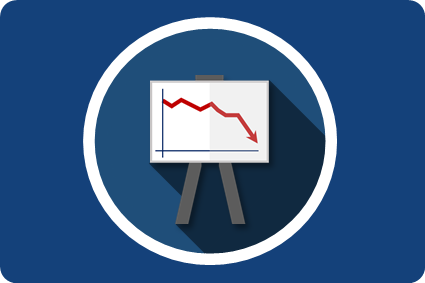Complacency is Costing Your Business Money Saving Opportunities
Updated 12th May 2021 | 6 min read Published 20th August 2015

There is an epidemic sweeping across every business sector. It has infiltrated leadership teams since the dawn of time and, as of yet, no definitive cure has yet been found. What is this dangerous, business destroying virus that nearly every team across the globe will suffer from?
Complacency.
Ironically, complacency makes us a victim of our own success. Along with its cousins – familiarity and tolerance – complacency provides a false sense of security that our business processes are perfect and do not need to evolve, which, if left untreated, can break down even the most seemingly stable of businesses.
Complacency is generally contracted following a successful business deal. Whether renewing a contract with a prolific client or making a profit at the end of a quarter, once an organisation has found a system that works, it is increasingly difficult to convince anyone to consider an alternative method. However, complacency is one of the biggest obstacles for improved profits and saving opportunities within business.
As industries change and technological evolution occurs on a seemingly monthly basis, businesses that are stuck in the robotic repetition of familiar habits may find themselves in trouble. Just as the seemingly flawless film rental industry was quickly overshadowed and overpowered by the developments in online streaming, failure to keep up with innovation can cause a business to crumble.
“That’s the way we’ve always done things here”
Complacency doesn’t just affect organisations in such a make or break manner. In fact, it is often the niche or seemingly mundane tasks that hold the greatest money saving potential as they remain the most overlooked aspects of operational success.
One example where there is a stunning lack of innovative thought is equipment leasing. The leasing industry as an alternative to buying assets has grown in popularity over recent years, with figures showing asset finance increased globally by the largest amount in 7 years in 2014. However, as a fairly niche aspect of a business’s overall financial obligations, leasing has often gone unnoticed and unchanged. It is particularly common in the construction and manufacturing industries - who lease material handling equipment such as forklift trucks and other machinery - that a company gets stuck in a cycle of familiarity. Many of these leases are arranged through the manufacturer and it often seems easier to arrange new leases and renew existing equipment through the same source, with little thought about exploring an alternative.
This may not seem like a problem, in fact there are numerous advantages to remaining loyal to a supplier you respect and who you know is providing you excellent service and competitive lease agreement. However, the reason many of these companies remain with their lease suppliers is more likely due to a sense of familiarity and complacence and not because the lease offers the best rental or interest rates. Why deal with the hassle and negotiation of arranging a lease with a new lessor when we can manage with what we have?
As any successful entrepreneur will tell you tolerating inefficient processes simply because “we’ve always done it that way”, is not a sign of success, but in fact a dangerous and limiting mantra that could be withholding potentially critical savings in capital expenditure.
The Solution
Companies cannot claim to have the most optimal processes without comparing themselves to the available alternative options. Only once they have confirmed themselves to be more optimal than the alternatives are they able to confidently and boldly assert that they are getting the best deal possible.
This is the same for the leasing example; business that blindly renew or arrange new leases with a lessor simply because they already have leases with them are likely to be missing out on huge cost savings opportunities. Unless you know what other lessors are offering, how can you confidently state that you have the most convenient leasing deals that suit your business’s operational and financial requirements?
The most successful relationships grow and adapt with current trends and new pressures, so even if you are confident that you wish to stay with your current lease provider, it is still recommended that you review the market alternatives. Are there better lease rentals on offer? Do competitors have a lower interest? Do you need additional asset maintenance and insurance in the lease? Would it be cheaper to source them separately?
If you do find a more convenient deal that suits your financial and accounting requirements, you can still stay with your chosen lessor as well as optimising your lease agreements. Why not utilise the respect and open communication earned over years as a committed customer to negotiate a revised agreement that benefits you both, based on the better offers available from their competitors? Even if you do not find a better alternative, you now have the knowledge that you have secured the best leasing terms and conditions available.
The relationship between the lessee and a lessor is vital to ensuring a competitive leasing deal; an open channel of mutual understanding and communication can be the key to securing cheaper leases. As industry experts estimate that 70% of traditional manufacturing companies are now leasing equipment, there is a considerable amount of wasted saving opportunities.
How to beat complacency?
Most people have heard the phrase “curiosity killed the cat”, but very few know how that popular phrase actually ends.
“Curiosity killed the cat, but satisfaction brought it back”
Naturally, the potential of additional cost implications or irreversibly damaging a system that has worked puts many off embracing an alternative. However, successful businesses rely on the analysis and application of market data to make informed decisions so it would be illogical to blindly continue with inefficient and needlessly costly processes without exploring alternative options. It may feel like a risk when we leave our complacent comfort zones, but the potential benefits can more than outweigh the leap of faith and can mean the difference between tolerating failing procedures and being top of your industry. So how can we prevent picking up bad habits?
- Ask the customer
Their opinion is the most important of all. What would make their lives easier?
- Consult your team
What processes do they think are the most inefficient? How can things be improved?
- You can always improve
If it ain’t broke, make sure you know why it works; you could make it even better
- Use a fresh pair of eyes
Ask the experts, they’ll pick up things you may have missed.
- Listen to fresh ideas
Don’t immediately reject change, perhaps even trial a few ideas.
- Stay paranoid
Remind yourself that the face of your industry could change overnight.
- Look after the pennies
Don’t take the small tasks for granted, they could be where your wasting most.
- Assess the competition
What are they investing in? Is it working? How can we stay ahead?
To find out more about how reassessing your business’s current lease management and how some of the world’s leading brands have made huge cost reductions, get in touch with our leasing experts. We’ll give an unbiased and detailed analysis of your lease portfolio and work with you to help improve your leasing processes to save you money, time and ensure you are fully optimised to comply with new global lease accounting standards.
To hear more, download our guide on lease management and begin the process of overcoming complacency in your corporate leasing.
Share this Article:
Linkedin Twitter



